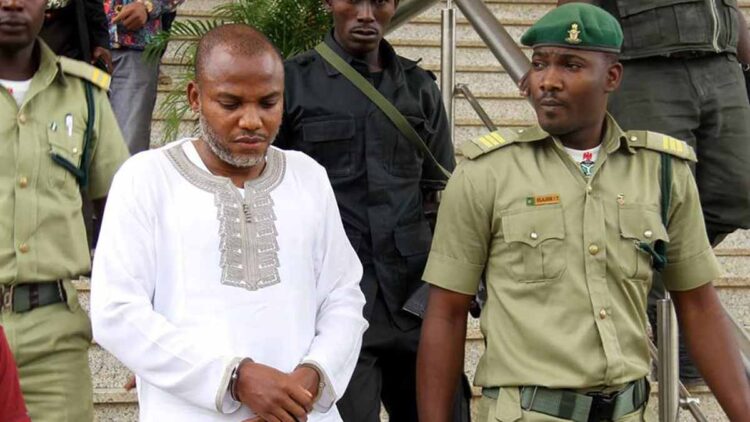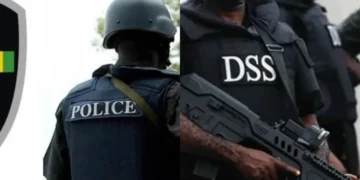A wave of reactions has followed the Federal High Court judgment sentencing Nnamdi Kanu, leader of the proscribed Indigenous People of Biafra (IPOB), to life imprisonment. The ruling, delivered in Abuja on Thursday, November 20, brought an end to years of trial on terrorism-related charges.
Justice James Omotosho, who handed down the sentence, acknowledged that Kanu had portrayed himself as a freedom fighter but said he chose “the path of terrorism.” The court found him guilty on counts one to seven, which included issuing a sit-at-home order that allegedly led to deaths and economic disruptions in the South-East, membership of a proscribed organisation, and inciting violence against security personnel.
Prominent Nigerians were divided in their responses.
Lagos APC chieftain, Joe Igbokwe, said he was satisfied with the verdict, describing it as a necessary step toward restoring peace in the region.
Federal Government counsel, Adegboyega Awomolo, praised the judiciary, saying the ruling had “brought an end to oppression” faced by citizens in the eastern states.
The Centre for Social and Economic Rights (CSER) also welcomed the judgment, calling Kanu an “international terrorist” and describing the ruling as a major victory in the fight against terrorism. Executive Director Nelson Ekujumi dismissed attempts to present IPOB as a freedom movement, citing the group’s history of violence.
Several international figures condemned the verdict.
Gunther Fehlinger-Jahn, Chairman of the Austrian Committee for NATO, labelled the ruling “a disgrace,” urging the US and EU to pressure Nigeria to release Kanu.
Human rights activist Malcolm Omirhobo accused the government of double standards, contrasting Kanu’s conviction with the treatment of Islamic cleric Sheikh Ahmad Gumi, who he argued openly interacts with armed bandit groups without consequence. He called on authorities to ensure equality before the law and investigate Gumi for alleged ties with terrorists.
US Congressman John James described the case as another example of religious persecution in Nigeria, while Nick Donnelly, a permanent deacon in the UK, claimed Kanu had been “falsely convicted,” calling the trial a travesty of justice.
Acclaimed Nigerian author Chimamanda Ngozi Adichie also weighed in, describing Kanu as a “global figure” and urging Nigerians to reflect on the broader issues the case exposed.
Human rights advocate Elochukwu Ohagi compared Kanu’s sentence to the case of Yoruba activist Sunday Igboho, alleging ethnic bias in the administration of justice.
Deputy Speaker of the House of Representatives, Benjamin Kalu, speaking on behalf of Igbo leaders, said efforts were underway to seek a political resolution.
According to a statement by his Chief Press Secretary, Levinus Nwabughiogu, Kalu remained optimistic that President Bola Tinubu would consider appeals for Kanu’s release now that judicial processes have concluded.
Kanu’s legal troubles began with his 2015 arrest on charges of treasonable felony and terrorism. His home was raided in 2017 during “Operation Python Dance,” prompting him to leave the country while on bail.
He was arrested again in Kenya in 2021 under circumstances his lawyers described as “extraordinary rendition” and returned to Nigeria. His defence team repeatedly challenged the legitimacy of the trial, alleging breaches of international legal procedures.
Kanu eventually dismissed his legal team and opted to represent himself against a seven-count charge.










